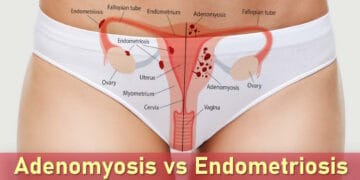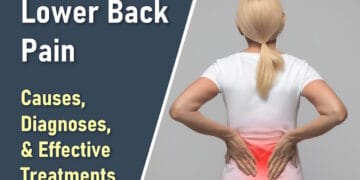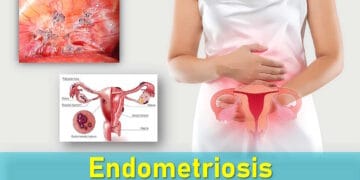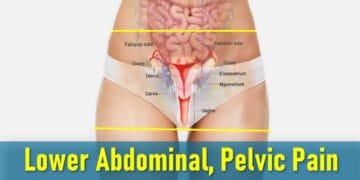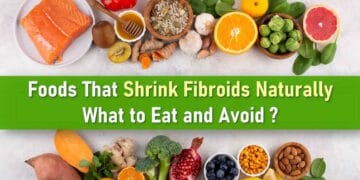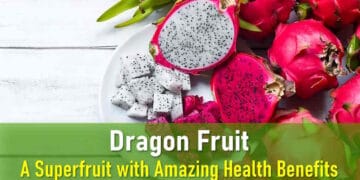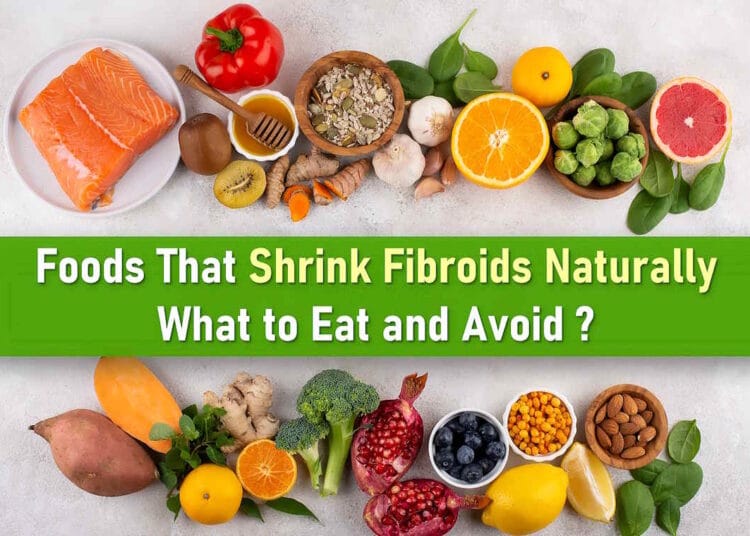Fibroids, also called uterine fibroids or leiomyomas, are non-cancerous growths that develop in or around the uterus. These growths can range in size, some as small as a pea, others as large as a melon. While many women with fibroids in the uterus experience no symptoms, others may struggle with heavy menstrual bleeding, abdominal swelling, or urinary issues.
Uterine fibroids are surprisingly common, affecting up to 70% of women during their reproductive years. Research suggests they occur most frequently in women aged 35 to 44. Though benign, fibroids can significantly impact quality of life, leading to complications like anemia from excessive bleeding or even fertility challenges.
Why Diet Matters in Managing Fibroids
Heavy menstrual bleeding caused by fibroids can contribute to iron deficiency, fatigue, and other health concerns. Beyond physical symptoms, fibroids often carry social and economic burdens, missed workdays, costly treatments, or emotional stress. While medical options like surgery or hormone therapy exist, growing evidence highlights nutrition as a key factor in both prevention and management.
Studies link low intake of fruits, vegetables, and vitamin D to a higher risk of fibroids. Conversely, a balanced diet rich in specific nutrients may help shrink fibroids or ease symptoms. This article explores the best foods for shrinking fibroids and how dietary choices can support uterine health.
Types of Fibroids
Fibroids are benign tumors that form in the uterine wall, often influenced by estrogen and progesterone levels. If left untreated, they can cause heavy or prolonged periods (menorrhagia), sometimes leading to anemia. Fibroids vary in type, location, and symptoms. Fibroids can grow, shrink, or disappear over time. Their location determines their classification and potential symptoms:
- Intramural fibroids: The most common type, these grow within the uterine wall. They may stretch the uterus, causing pressure, discomfort, or heavier periods.
- Subserosal fibroids: These develop on the outer uterus and can press against nearby organs like the bladder or intestines, leading to frequent urination or constipation.
- Submucosal fibroids: Found just under the uterine lining, these often trigger heavy bleeding, longer periods, or fertility issues despite being less common.
- Pedunculated fibroids: Attached to the uterus by a stalk, these may cause sharp pain if the stalk twists, cutting off blood supply (a condition called fibroid torsion).
Symptoms of Uterine Fibroids
While many women with fibroids experience no symptoms, others face significant discomfort. According to health experts, common signs of fibroids include:
- Heavy or painful periods: Excessive menstrual bleeding (menorrhagia) is a hallmark symptom of fibroids in the uterus.
- Iron-deficiency anemia: Prolonged heavy bleeding can lead to fatigue, weakness, and dizziness.
- Abdominal swelling: Larger fibroids may cause a visibly distended lower abdomen.
- Frequent urination: Fibroids pressing on the bladder can increase urinary urgency.
- Pain during intercourse: Discomfort or pain may occur, depending on fibroid size and location.
- Lower back pain: Some women report persistent aching in the back or pelvis.
- Pregnancy complications: Fibroids may increase the risk of preterm labor or miscarriage.
- Infertility: In rare cases, fibroids can interfere with conception.
Who Is at Risk for Fibroids?
Certain factors elevate the likelihood of developing uterine fibroids:
- Age: Risk peaks in women aged 35–50, with diagnoses often occurring during routine pregnancy ultrasounds. Fibroids rarely develop before puberty or after menopause.
- Ethnicity: Research suggests Black women have a higher incidence (up to 80%) compared to white women (70%), though asymptomatic cases may skew data.
- Obesity: Excess weight is linked to hormonal imbalances and chronic inflammation, which may fuel fibroid growth.
- Family history: A genetic predisposition increases risk by 20–30%, particularly with mutations in genes like VEGF-A, which affects blood vessel formation.
- Vitamin D deficiency: Low levels of vitamin D—common in Black women—are associated with reduced fibroid-suppressing receptors in uterine tissue.
- Diet: Processed foods, alcohol, and hormone-disrupting pollutants may spike estrogen levels, accelerating fibroid development.
How Obesity and Inflammation Fuel Fibroids
Obesity isn’t just a number on the scale—it’s a metabolic trigger for fibroids. Fat cells release inflammatory molecules called adipokines, which can disrupt uterine tissue and promote tumor-like growth. Elevated triglycerides (fats in the blood) further worsen inflammation, creating a cycle that encourages fibroids to form and expand.
Studies suggest that oxidative stress—a cellular imbalance linked to obesity—activates harmful signaling pathways (like NOX4 and TGFB3) in uterine muscle cells. Over time, this leads to excessive collagen buildup and fibroid proliferation. A review of 24 studies confirmed that higher BMI correlates with increased fibroid risk.
The Role of Vitamin D and Diet
Vitamin D isn’t just for bones—it may help protect against fibroids. Women with fibroids often have fewer vitamin D receptors in uterine tissue, making deficiency a potential risk factor. Since vitamin D regulates cell growth, low levels could allow fibroids to thrive unchecked.
Diet plays a dual role: it can either exacerbate or alleviate fibroid symptoms. For example, processed meats and high-sugar foods may spike estrogen, while leafy greens and omega-3-rich fish can combat inflammation. Later, we’ll explore the best foods for shrinking fibroids naturally.
Best Foods for Shrinking Fibroids Naturally
Did you know your diet can make a big difference when it comes to fibroids? Research shows that women who eat at least four servings of fruits and vegetables every day have a lower risk of developing fibroids compared to those who eat only one serving a day. These healthy foods are packed with natural compounds that may help shrink existing fibroids and prevent new ones from forming.
Fruits and Vegetables
Fruits and vegetables contain powerful natural substances that protect your body from disease and may help control fibroid growth. They can:
- Reduce inflammation
- Help balance hormones
- Slow down abnormal cell growth
- Support the body’s natural cleansing process
The best fruits and veggies for fibroid health include:
- Berries: Blueberries, strawberries, and raspberries
- Citrus fruits: Oranges, lemons, and grapefruits
- Tomatoes: Especially cooked tomatoes
- Green vegetables: Broccoli, kale, Brussels sprouts, and cabbage
Natural Compounds in Foods That May Help control Fibroids
Some fruits and vegetables contain natural plant compounds that may help reduce fibroid growth. Here’s how they work:
Flavonoids (in Berries and Citrus Fruits)
Flavonoids are antioxidants found in strawberries, blueberries, and citrus fruits. They may help shrink fibroids by slowing down collagen production (a protein that makes fibroids grow) and encouraging fibroid cells to die off naturally.
Curcumin (in Turmeric)
Curcumin is the bright yellow compound in turmeric. It may help stop fibroids from growing by blocking inflammation and reducing proteins that help fibroids develop.
Indole-3-Carbinol (in Cruciferous Vegetables)
This compound, found in broccoli, kale, and Brussels sprouts, helps balance estrogen levels in the body, which may slow down fibroid growth.
Lycopene (in Cooked Tomatoes)
Lycopene is an antioxidant that gives tomatoes their red color. It may help shrink fibroids by reducing inflammation and slowing abnormal tissue growth.
Resveratrol (in Berries and Grapes)
Resveratrol is a natural compound found in berries and grapes. It may stop fibroid cells from growing and encourage them to break down naturally.
Helpful Supplements for Fibroids
Green Tea Extract
Green tea contains a compound called EGCG that may help shrink fibroids by slowing their growth and encouraging fibroid cells to die off. Studies have shown that women who took green tea extract had smaller fibroids and fewer symptoms.
Vitamin D
Low levels of vitamin D are linked to a higher risk of fibroids. Vitamin D helps regulate cell growth and may slow down fibroid development. You can get vitamin D from foods like:
- Fortified milk and orange juice
- Fatty fish like salmon
- Egg yolks
- Mushrooms exposed to sunlight
While these natural options can support fibroid health, they are not a replacement for medical care. It’s important to work with your doctor to find the best plan for managing fibroids, especially if you have symptoms like heavy bleeding or pain.
Foods to Avoid When Managing Fibroids
While adding beneficial foods to your diet can help with fibroid symptoms, it’s equally important to be mindful of foods that might worsen uterine fibroids. Here are key dietary items to limit or avoid:
Certain Types of Fish
Some fish may contain environmental pollutants like polychlorinated biphenyls (PCBs), which animal studies suggest could contribute to fibroid growth. While research in humans is limited, it may be wise to:
- Choose smaller fish (like sardines or salmon) over larger predator fish that accumulate more toxins
- Limit consumption of fish from potentially polluted waters
- Balance fish intake with other lean protein sources
High Glycemic Index Foods
Foods that cause rapid blood sugar spikes may worsen fibroids by increasing insulin-like growth factor, which can stimulate fibroid cells. Try to reduce:
- Processed snacks (chips, crackers)
- Sugary drinks and desserts
- White bread and refined grains
- Fast food and fried items
- Potatoes (especially fried or processed forms)
Alcohol
Regular alcohol consumption, particularly beer, has been associated with increased fibroid risk in some studies. Alcohol may affect estrogen metabolism, potentially fueling fibroid growth. If you choose to drink:
- Limit to moderate amounts (1 drink or less per day)
- Opt for red wine, which some research suggests might have less impact
- Consider alcohol-free periods to give your body a break
Coffee and Caffeine
For women over 35, high coffee consumption may increase estrogen levels temporarily, which could affect fibroids. If you’re sensitive to caffeine:
- Try limiting to 1-2 cups daily
- Explore alternatives like herbal teas or chicory coffee
- Pay attention to whether caffeine worsens your fibroid symptoms
Putting It All Together: A Balanced Approach
Managing uterine fibroids through diet involves both adding beneficial foods and being mindful of potential triggers. Remember:
- Focus on variety: Load up on colorful fruits and vegetables, especially leafy greens and berries
- Consider supplements: Green tea extract and vitamin D show promise for fibroid management
- Moderate problem foods: You don’t need complete elimination, just mindful reduction
- Listen to your body: Track how different foods affect your fibroid symptoms
While dietary changes can help manage fibroid symptoms, they’re most effective when combined with professional medical care. If you’re experiencing signs of fibroids like heavy bleeding or pelvic pressure, consult your healthcare provider about comprehensive treatment options.
Note: Research on diet and fibroids is still evolving. These recommendations are based on current evidence but may be adjusted as new studies emerge.
Frequently Asked Questions (FAQs)
What foods shrink uterine fibroids naturally?
Berries, leafy greens, citrus fruits, turmeric, tomatoes, and green tea may help reduce fibroid size due to their anti-inflammatory and antioxidant properties.
Which foods should I avoid with fibroids?
Limit processed foods, sugary snacks, alcohol, caffeine, and potentially high-mercury fish as they may worsen fibroid symptoms or promote growth.
Can vitamin D help with fibroids?
Yes, vitamin D deficiency is linked to fibroid development. Foods like fortified milk, fatty fish, and egg yolks may help manage symptoms.
How does diet affect uterine fibroids?
Diet influences hormone balance and inflammation – key factors in fibroid growth. Eating antioxidant-rich foods may help regulate estrogen levels.
Is coffee bad for uterine fibroids?
Coffee may temporarily increase estrogen levels, potentially affecting fibroids. Consider limiting to 1-2 cups daily if you’re over 35.
What fruits are best for fibroids?
Berries (strawberries, blueberries) and citrus fruits (oranges, lemons) are excellent choices due to their high flavonoid content.
Can green tea reduce fibroids?
Studies suggest green tea’s EGCG may help shrink fibroids by slowing abnormal cell growth. Drinking 2-3 cups daily may be beneficial.
Are there foods that make fibroids worse?
High-glycemic foods (white bread, sweets), alcohol (especially beer), and processed meats may exacerbate fibroid symptoms for some women.

